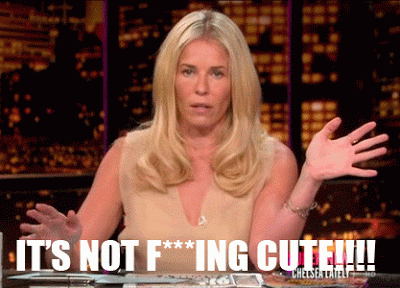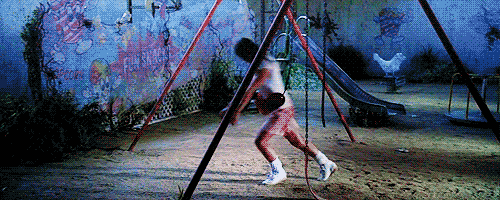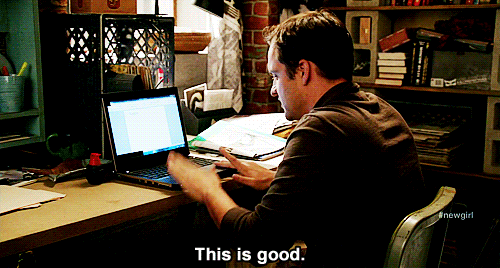I somehow stumbled into a time warp after moving to D.C. — my workdays are packed and the weeks move by at a surprisingly fast clip. I frequently find myself glancing at my computer clock at work and wondering “How the hell is it 7 p.m. already?”

I somehow stumbled into a time warp after moving to D.C. — my workdays are packed and the weeks move by at a surprisingly fast clip. I frequently find myself glancing at my computer clock at work and wondering “How the hell is it 7 p.m. already?”
I have used Microsoft OneNote ever since the program came pre-installed on my crappy law school laptop 10 years ago.
OneNote is easily my favorite note-taking app and I assumed that all law students of a certain age used it. So it was to my horror this past semester when very few of my Georgetown LL.M. classmates even knew what OneNote was!
Here’s a very brief look at OneNote and why every law student and writer needs it.
OneNote is a free note-taking application from Microsoft. You can download OneNote to run as a desktop application or access it at OneNote.com.
This program is great for note-taking and long-term projects involving multiple documents. I also use OneNote to draft blogs. However, for print-ready essays, I still port everything over to Microsoft Word.
OneNote differs from Microsoft Word in several ways:
Here’s how you can get the most out of OneNote in law school (or any academic program.)
Back in 2011, Google launched a social network that was poised to be a “Facebook killer.” I joined the wave of marketers that adopted Google Plus, and briefly considered abandoning Facebook.
Six years later — Facebook dominates our lives more than ever and G+ is widely viewed as a failure. I however, use Google Plus every day and find it an important part of my productivity.
I don’t use Google Plus as a social network, but rather as a convenient bookmarking tool that saves me a ton of time every day.
Like most people, I have a habit of getting easily distracted online — but G+ helps me stay focused in the moment by allowing me to quickly save interesting articles and websites so I can return to them later.
And I actually do this — when I’m stuck in line somewhere, I will open the G+ app on my phone and find what is basically my “to read” list. If I am signed into Google Chrome, things that I posted to my Google+ profile will float to the top of search results so I can find them later.
I recommend giving “Google Plus as bookmarking tool” a try — it significantly improved my productivity by giving me more control over when I consume interesting content.
The Prince by Niccolò Machiavelli is one of my favorite books. I re-read it constantly.
This Italian political treatise is about 500 years old, but contains a lot of insights into human behavior that translate well into modern life, particularly politics and marketing.
I recently thought of my favorite passage from The Prince during an awful client meltdown.
This situation will be familiar to many of my digital marketing friends:
When dealing with a client who refuses to accept digital marketing changes, I think about Machiavelli’s warning to leaders who face resistance to change:
I often occasionally find myself distracted by the Joneses – those frenemies with glamorous careers, clothes, bodies, blogs, Instagram feeds, etc.

This leads to the occasional happy-hour griping, which my friend Jill often shuts down –
“Remember that for all of your “troubles” you are still in an elite position,” Jill says.
The Struggle Isn’t Real – I have a law degree from a top school, whereas only a third of Americans between the ages of 25 and 29 have completed bachelor’s degrees or higher, and only 8% of that group had completed a master’s degree or higher.
Most of my coworkers and I make well above the national median for income as well.
British therapist Marisa Peer has an interesting take on productivity and willpower – she says that the secret to achieving your goals is effectively communicating with your mind.
“When you collaborate with your mind and tell it what you want, then you get what you want.”
Four things you need to know about the mind:
I had some experiences with these principles during my first winter in Minnesota. Initially, I wore insane amounts of layering (long-johns, 3 pairs of socks, etc.) because I thought the cold was going to be so awful.

Blizzard in Minneapolis, Minnesota. My car was buried.
One of my favorite time management concepts is “Who’s got the Monkey?” by William Oncken, Jr. This time management classic is targeted at managers, but I think this time management skill works great for non-managerial employees too.
The author uses the “monkey on your back” metaphor to describe how we assign tasks to each other. The “monkey” belongs to whoever has the next move.
You typically have a monkey on your back when someone has a task that you agree to take on, or a problem that you agree to look into. You get the monkey because the burden is on you to act.
The monkey doesn’t jump back to the other person until you complete your task and the next move is theirs.
Monkeys from bosses and customers are inevitable, (and part of your job to deal with), but monkeys from peers and subordinates can sabotage your performance.
Note: This post reflects my personal opinions, and not those of my employer.
Thomson Reuters is a conglomerate with about 50,000 employees across the globe.
Thomson Reuters is different than other conglomerates like Berkshire Hathaway or Samsung, because it has a standardized set of operating principles, consistent branding across divisions, and shared IT and HR resources.
I first noticed the problem after glancing at my email around 8 a.m. yesterday. I somehow had 54 emails despite being at inbox zero the night before.
“If you just show up and work hard, you’ll soon hit a performance plateau beyond which you fail to get any better.” – Cal Newport
Deliberate Practice is one of the most important concepts in Cal Newport’s book, “So Good They Can’t Ignore You.”
Deliberate Practice is what separates amateurs from professionals, and key to avoiding a career plateau.
My college literature professor Lindsey Tucker described a career plateau perfectly: “Just because there’s a continuation doesn’t mean there isn’t stagnation.”
In other words: It is possible to do the same thing for years and never gain meaningful expertise.
This is one of the reasons why “years of experience” is a stupid job posting criterion.
Amateurs stay in their comfort zone.
This practice is all about stretching your limits beyond your comfort zone.
Misdirecting my effort is one of my biggest pet peeves and phobias. (There is nothing worse than realizing you wasted hours tilting at windmills.)
The fear of wasting time makes it really easy to fall into inaction. I often accomplish nothing because I have used all of my time researching, planning, and hand-wringing.
The result is that I end up doing exactly what I fear: wasting time.

Brenda Ueland touched on this paradox in her classic book If You Want to Write:
“When you will, make a resolution, set your jaw, you are expressing an imaginative fear that you won’t do the thing. If you knew you would do the thing, you would smile happily and set about it. And this fear (since the imagination is always creative) comes about presently and you slide down into the complete slump of several weeks or years – the very thing you dreaded and set your jaw against.”
I am the guy who signs up for too much – the guy who takes too many classes, works too many jobs, and joins too many organizations.
Or rather, I always thought that I struggled with time management until I recently read Elizabeth Grace Saunders’ time management article in the Harvard Business Review.
It is 4:30 pm on a Thursday. I have been in phone conferences, webexs, and in-person meetings since 8am.
I finally return to my desk and open outlook.
That’s when I see it: 102 unread emails as of 8:05 a.m.
I’m horrified.
I knew that to get control over my day, I needed to change my approach to meetings and emails.
This is what I did:
Cal Newport is one of my favorite bloggers. A mathematics professor by trade, Newport is better known for his tips on studying, productivity, and careers.
After regularly reading his blog for a year, I decided to buy his book “So Good They Can’t Ignore You.” I was intrigued by the premise: if you want a great career, don’t worry about following your passion.
Newport’s book was an excellent companion piece to Steven Pressfield’s “The War of Art.” Pressfield focused primarily on overcoming self-sabotage and focusing on your work. Newport describes how to turn your work and skills into a great career.
The most provocative rule in Newport’s book is “Don’t Follow Your Passion.” Newport systematically debunks the underlying premise of most career advice books – something he calls the passion hypothesis:
“The passion hypothesis claims that the key to occupational happiness is to first figure out what you’re passionate about and then find a job that matches this passion.”
Newport argues that approaching your work from a “passion mindset” is wrongheaded because your focus is primarily on the value your job is offering you. A focus on pursuing your passion “ultimately leads to chronic dissatisfaction and daydreaming about the better jobs you imagine existing out there waiting to be discovered.”
The Great Discontent is one of my favorite magazines. It’s comprised entirely of interviews of creative individuals like designers, illustrators, writers, and entrepreneurs.
Interviewees are asked a standard set of questions, including whether they have any favorite books.
The War of Art by Steven Pressfield kept coming up during these interviews – from business writer Seth Godin to photographer Paul Octavious.
The diversity of people recommending this book made me curious enough to purchase it and see what the fuss was about.
Simply put – The War of Art is fascinating, but slightly depressing because it destroys my ability to create excuses for not getting important work done.
Steven Pressfield explores three aspects of living a productive creative life:
1. Combating resistance
2. The importance of craftsmanship
3. Playing for money
I recently re-read Ayn Rand’s 1943 classic, The Fountainhead. The novel is a story about perseverance and exceptionalism set in 1920s and 30s New York City.
The protagonist is Howard Roark, an architect who refuses to compromise the principles behind his work.
There are a host of characters determined to thwart Roark’s career, from Peter Keating, a second-rate architect who achieves fame by copying the work of others, to Ellsworth Toohey, a critic who promotes mediocrity in order to destroy society’s ability to appreciate truly great work.
Major themes in the novel include competence, individualism, and preoccupation with the opinions of others.
Peter Keating is one of the most fascinating characters in the novel:
“Others were his motive power and his prime concern. He didn’t want to be great, but thought great. He didn’t want to build, but to be admired as a builder. He borrowed from others in order to make an impression on others.”
Keating is representative of a certain type of person that I encounter everywhere.
I only made one formal resolution this year:
Since my last promotion, I have been in the office well before 7 a.m. almost every morning.
Last month was probably the busiest month I’ve had since law school finals. I was in a different city every weekend, constantly stuck at airports, and stringing together 14-hour workdays during the week.
Oh, and attempting to move out of my old apartment.
My sleep schedule was awful, my love handles entered Precious-territory, and I had stress-related neck pain that caused the bottom part of my jaw to go numb.
In short, it was not cute.

I renovated my approach to work this month and my life has become drastically better. I made five simple changes and wiped a lot of unnecessary stress from my plate.
After watching a Claremont Colleges TEDx talk, I dusted off my old Moleskine notebooks and started carrying at least one with me at all times. Productivity coach David Allen recommends writing down every nagging “to do” or worry so it is not hogging mental bandwidth.
This casual note taking allows me to be fully available for tasks as I do them. It’s like anxiety meds that you don’t have to creep into CVS for.
“Don’t use your mind to accumulate stuff and avoid it. If you do not pay attention to what has your attention, you will give it more attention than it deserves.”
Every morning I do the most irritating or dreadful projects first.
If I don’t get them out of the way first, they are just going to stress me out throughout the day.
I inevitably find myself starting these put-off projects around 6:30p.m. at Dunn Brothers, completely burnt out and hating life.

I also get annoyed because procrastinated projects are rarely as awful or time-consuming as I expect.
It reminds me of that Brenda Ueland quote from If You Want To Write:
“When you will, make a resolution, set your jaw, you are expressing an imaginative fear that you won’t do the thing. If you knew you would do the thing, you would smile happily and set about it. And this fear (since the imagination is always creative) comes about presently and you slide down into the complete slump of several weeks or years – the very thing you dreaded and set your jaw against.”
The gift and curse of being a content strategist is that there always a million things I could be doing. One moment I’m writing a press release or article, another moment I’m tweeting or syndicating content on Google Plus.
I do my heavy writing in the morning when I’m feeling fresh and invincible. As the day progresses, I switch to more tedious and less mentally-challenging tasks like scheduling out tweets, looking at analytics, or clicking through workflows. This allows me to maintain productivity even if I’m tired.
I prefer just eating at my computer and continuing to work, but I’ve stopped doing this. If I work through lunch, I’m completely burnt out and drooling on myself by 3 p.m. – what I do instead is drive somewhere to pick up lunch. The quick drive is usually enough of a break for me to feel refreshed throughout the afternoon an into the evening.

Instead of working until my head hits the keyboard, I try to enforce a hard stop at 13 hours. I then go to the gym for an hour and cook myself dinner and eat while doing some non-work activity – like blogging for myself or watching Top Model. (Or both!)
The most important part of this “me time” is that I do not allow myself to feel guilty about it. The work laptop is closed and off my mind until 6 a.m. the next day. I do break this rule occasionally for my California clients, but for the most part, if it’s not a true “fire,” it can wait until tomorrow.
Exercise and unwinding before bed are also apparently good for you. I am no longer staying up at night fretting about a procrastinated task or big project – that’s what the Moleskines are for.

So I was one of the speakers at SoLoMoCon (Social, Local, Mobile Conference) which was thrown by RSP Marketing.
My presentation was a little bumbling, but the coffee was good and I met a lot of highly interesting people in the Twin Cities marketing community.
The most fascinating thing about the experience was to see how people used their smartphones and iPads during the presentation. It is extremely rare to see an iPad used at my office and a complete faux pas to use one during a presentation on campus (even at our huge town hall meetings.)
I have a suspicion that this is maybe unique to our corporate culture and pretty out of place with the rest of the marketing community. I wonder what the reaction would have been if I pulled out a Microsoft Surface…
The first group of people is staying in the bar scene and going out as usual. The second group is getting into serious relationships, buying houses, and exchanging the tequila shots for Home Depot charge cards.
I’m part of the third (and smallest) subset – doubling-down at work, scoping out MBA programs, and plotting the next promotion. There’s a new satisfaction in my work since I was promoted six months ago, and things are going well.
Dating has grown awkward. I’m attracting college seniors and guys who have kids older than I am.
The upshot of my arid dating life is that I have far fewer distractions from work. I’m actually too busy to worry about finding a relationship – that’s a crisis for 36, not 26.
Is it that time of year? During the past week, I have received a disturbing number of angsty emails and direct messages from 1Ls along the line of “oh my god I’m drowning.”
Obviously my advice to “calm down, breathe, and just do” is falling on deaf ears so I’m going to give the panic crew an assignment, due by the end of next week: 5 steps to productivity.
Typically you do not need a computer to complete your reading assignments. Write the page numbers down on a piece of paper and leave the laptop in your locker. This way you can focus on Torts and Contracts, and not the fug blog, which is only mildly related to the tort of intentional infliction of emotional distress.